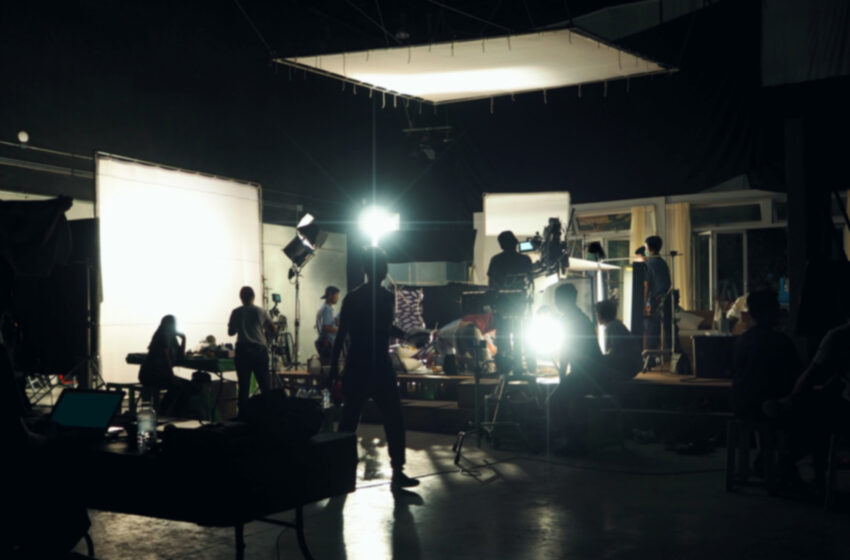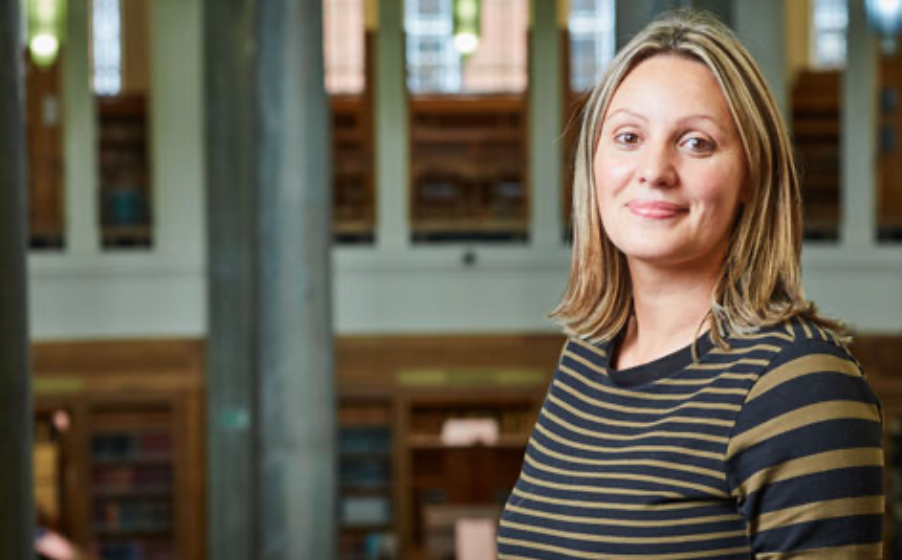
“It shapes what gets commissioned”: Professor Beth Johnson on class in television
A University of Leeds professor has teamed up with the BBC, Channel 4 and a major production company to analyse the role of social class, on screen and behind the scenes of TV production.
Beth Johnson, who teaches Television and Media Studies at the School of Media and Communication, is leading the project called ‘What’s on? Rethinking class in the television industry‘.
The research is being funded with support by the Arts and Humanities Research Council (AHRC), the BBC and Channel 4.
The two broadcasters are facilitating access to two drama productions so the researchers can examine the shows from production to audience reception.
They will be looking at social class representations in the production teams and representations in the series itself. The team will also analyse how the series is understood by the public.
Beth Johnson told The Gryphon that the project was important to her because “TV doesn’t just reflect the world around us – it shapes our understanding of the world, of culture and what it could be.”
“It’s absolutely crucial that the communities that we see on screen represent the full spectrum of humanity”
Whilst on-screen representation and the diversity of programmes commissioned have improved, Beth says that inequalities continue to persist in production.

“While television may appear more diverse and inclusive in its programmes and representations, behind the camera the picture is not so rich. The inequalities that permeate the television industry are stark in terms of class, but importantly, no one’s identity is singular […] to create change we need to better understand that in relation to whole, intersectional identities.”
The research, she says, will focus on “an intersectional approach to understanding social class, mirroring recent trends, and recent gaps in research and policy” such as “aspects of identity that are intrinsically entwined with other demographic characteristics and markers of identity such as gender, race and disability.”
The researchers in collaboration with Leeds-based Candour Productions will create a film based on their research and findings.
Beth says she is excited to work with the BAFTA award winning Candour Productions.
“Their passion is to make ‘films that make a difference’ and they specialise in hard-hitting content on pressing social issues.
“They share our team’s commitment to on and off-screen inclusivity and working together we’ll ensure that the make-up of the production team behind the camera reflects the inclusivity we want to see in the broader television industry while sharing powerful stories of what class barriers feel like, and what change looks like.”
Focus groups with audience members, and viewership data, will be used in order to see and understand how viewers respond to the representations of class.
The researchers will also undertake interviews, network ethnography, focus groups, and close textual analysis.
The combination is an innovative and unique approach to studying class and TV.
The results of the project will show ways that social classes are interpreted and attempt to reduce intersectional class inequalities in the TV industry. They want to change policy and practice.
“The aim of the research is to better understand that intersection so that we can make production, representation, and consumption fairer”.
She says the main aims of the project are to raise awareness of class inequalities in the TV industry and encourage policy change to address class inequalities.
“We want to create changes in organisational practice, such as hiring and commissioning, and changes in on-screen representation and consumption practices.”
Beth says the BBC, as a world-leading public service broadcaster, is “central” to the discussion of class representation in television production. She says the broadcaster was keen to get involved with the project.
Channel 4, as well, has a history of “commissioning culturally important drama and comedy programming, and in addition to its role in independent production, it has also taken steps to address class imbalances in its workforce”.
“Class is crucial in shaping what gets commissioned for television, who gets roles on and off screen, and the sorts of representations of social class that are broadcast and made available to download or stream.
“Despite efforts to level the playing field, the TV workforce remains dominated by those from professional and managerial backgrounds; labour market structures and pay rates advantage those with economic and social resources; and experiences of working-class individuals are misunderstood and misrepresented.”
She wants to analyse the misinterpretations and unfair representations of the working class and the fact they have a disadvantaged position in the media industry, especially in television production.
And finally, what is a television professor watching at the moment?
“It’s impossible to pick a favourite – there’s a lot of great television at the moment – but recent stand-out drama series for me include Happy Valley, written by the talented Sally Wainwright, I May Destroy You, written by Michaela Coel, It’s a Sin, written by Russell T. Davies. Happy Valley’s nuance in terms of class within communities, alongside its wonderfully flawed main character – Catherine Cawood (Sarah Lancashire) – showed the work that television can do to nuance representations of class and community.
“Professor Kristyn Gorton (Deputy Dean of AHC) and I have just completed a book on Sally Wainwright which will come out next year – she is such a talent. Michaela Coel, likewise, is extremely talented – and her work from Chewing Gum through to I May Destroy You is phenomenal in its richness, its layering and its boldness. It’s a Sin was powerful in both its representation of the HIV and AIDS epidemic in the 1980s and in the plurality of its characters and classed communities.”

